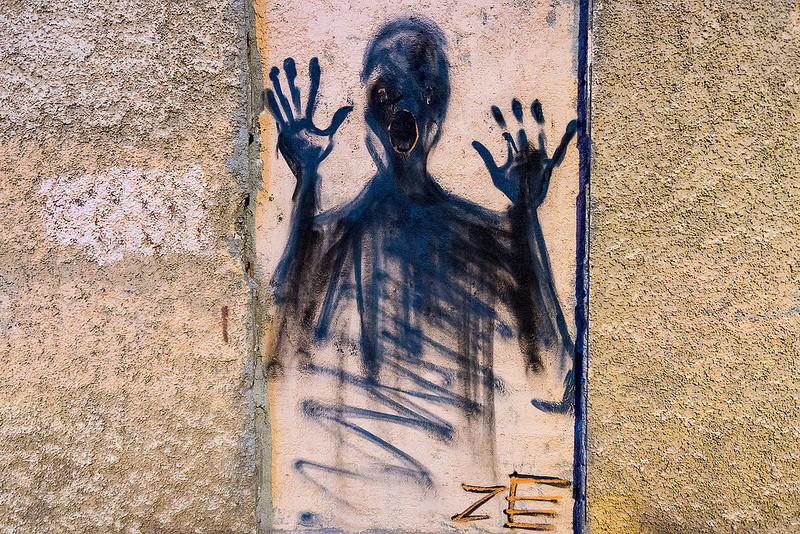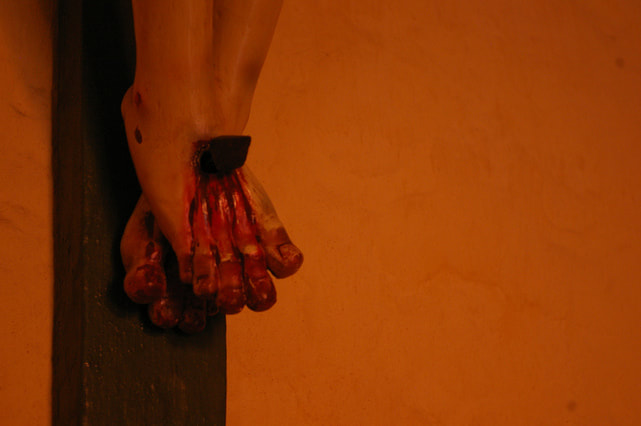Alas, it was the university’s journalism curriculum that left so much to be desired. Instead of challenging us to work hard and hone our skills, our professors spoon-fed us worldly philosophies that sent many of us down the broad way to destruction (see Matthew 7:13-14).
For example: There is no such thing as objective truth, they said. Every report is a product of the observed and the observer, whose preconceived notions inevitably sway his interpretation of the facts. Ergo, a journalist can only report “his” truth or “her” truth, never “the” truth, because “the” truth doesn’t exist.
Another example: If you can’t see it, it doesn’t exist. That includes fairies, elves, demons and gods. In my early 20s at the time and in full rebellion against the teachings of my Christian upbringing, I gladly embraced this idea. After all, if there was no all-seeing, goody-two-shoes God to judge me, I could do whatever I pleased. Which may explain why I never bothered to ask my professors, “But what about love and hate? Selfishness and sacrifice? Courage and fear? We can’t see things like these, either, but we know they exist.”
I must have missed the lecture on critical thinking.
At any rate, that’s what universities were teaching Wannabe Reporters as far back as the 1970s. Which probably explains a lot about the current state of journalism.
But I did pick up one interesting and most likely truthful concept in college: the idea of cognitive dissonance.
Here’s a good description of the phenomenon, compliments of Encyclopedia Britannica: Cognitive dissonance is “the mental conflict that occurs when beliefs or assumptions are contradicted by new information. The unease or tension that the conflict arouses in people is relieved by one of several defensive maneuvers: they reject, explain away, or avoid the new information; persuade themselves that no conflict really exists; reconcile the differences; or resort to any other defensive means of preserving stability or order in their conceptions of the world and of themselves.”
Or maybe they simply go mad.
I think cognitive dissonance must be epidemic in the western world today. I’ve never before heard so many people trying to justify the unjustifiable in a vain attempt to squelch mental conflict.
This is what happens when we refuse to recognize an absolute standard of right and wrong and instead consult our own desires. The Bible describes it as doing what seems right in our own eyes. Often, the result is cognitive dissonance – at least at first, until our hearts become so hardened that we are able to bury such conflict under mountains of excuses and distractions.
Happily, there is a worldview that eliminates this problem, requiring absolutely no mental gymnastics to ensure peace under any circumstances. That worldview is biblical Christianity.
Biblical Christianity makes it easy to know which path to follow in any situation. There’s no need for guesswork; God has provided us with all the answers in His word.
“It’s in the Book,” my friend Pam has been known to say. “If you want to know what’s right, just look in the Book!”
Does your boss want you to fudge your hours in order to pad a client’s bill? “You shall not bear false witness” (Exodus 20:16). Are you tempted to cheat on your taxes? “Render to Caesar the things which are Caesar’s” (Mark 12:17). Feeling unhappy with your neighbor for pointing out, quite rightly, that your lawn could use a good mowing? “Whoever is angry with his brother without a cause shall be in danger of the judgment” (Matthew 5:22).
And so on. I don’t imagine there’s an issue in this world that the Bible will not resolve for us, if we can only be bothered to study and follow its advice.
Christianity doesn’t protect us from life’s problems. But it sure does put an end to cognitive dissonance. I’m grateful to my alma mater for alerting me to this phenomenon, and to the Lord for wiping it out of His children’s lives.





 RSS Feed
RSS Feed